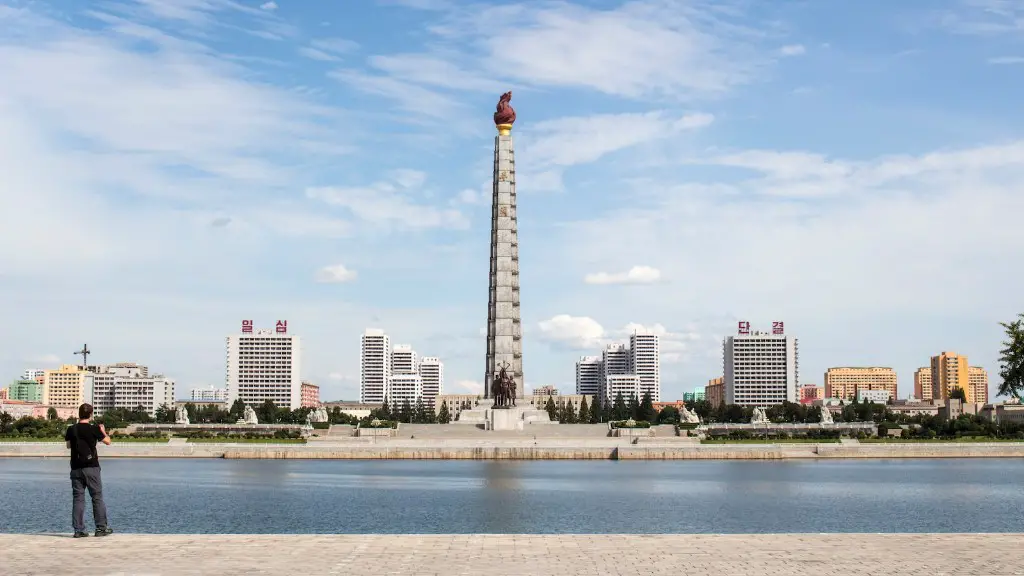North Korea’s Nuclear Weapons Program
North Korea has been developing its nuclear weapons program since the 1960s, following the collapse of the Soviet Union. In 2006, the country conducted its first successful nuclear test, drawing condemnation from the international community. Since then, North Korea has continued to develop nuclear weapons and ballistic missiles, raising fear of a potential nuclear attack.
North Korea’s nuclear weapons program has raised serious concerns in the international community. The United Nations Security Council has imposed a series of economic sanctions against North Korea in an attempt to contain the country’s nuclear ambitions. However, these sanctions have so far failed to deter the country from further expanding its nuclear program.
At the same time, there is evidence that North Korea has been actively trying to conceal its nuclear program, often making overt threats and issuing inflammatory statements. In 2017, North Korea threatened to “destroy any country that dares to transgress our sovereignty and dignity”, sparking international alarm.
North Korea’s Missile Tests
In 2017, North Korea continued to conduct missile tests, launching intercontinental ballistic missiles (ICBM) in August and November. The November 2017 launch prompted an emergency Security Council meeting, during which the US called for the strongest possible sanctions to be imposed on North Korea.
At the same time, North Korea has publicly stated its will to achieve “deterrence against nuclear threats from the US”, suggesting that it intends to use its nuclear weapons to deter potential attacks from the US. This has raised further questions about the country’s true intentions and whether it is serious about its threat to use nuclear weapons.
Experts’ Perspectives
Experts have expressed various views on the issue. Some argue that North Korea’s nuclear weapons program is largely a result of its desire to protect itself against external threats. They also note that North Korea does not possess the capacity to launch a nuclear strike on US soil, and that the country’s nuclear program has so far been largely defensive in nature.
Others are more skeptical, arguing that North Korea may be trying to use its nuclear weapons program as leverage to gain international recognition and financial aid. These experts also warn that North Korea’s nuclear program could pose a direct threat to the US and its allies if it is not carefully monitored.
Analysis
It is clear that North Korea’s nuclear weapons program is a major cause for concern. However, it is difficult to ascertain whether North Korea is actively trying to nuke the US. On the one hand, the country has continued to conduct missile tests and has publicly declared its intention to defend itself against threats from the US. On the other hand, the United Nations Security Council has yet to impose meaningful sanctions against North Korea, suggesting that the international community may not be taking the matter seriously enough.
Ultimately, it is important to bear in mind that North Korea is a sovereign nation that has a right to defend itself. At the same time, it is essential that the international community takes decisive action to contain North Korea’s nuclear ambitions and to monitor its development of nuclear weapons.
North Korea’s Claim on Nuclear Sovereignty
North Korea has long maintained that its nuclear weapons program is an act of self-defense, intended to protect the country from external threats. In recent years, North Korea has sought to use its nuclear weapons program to gain international recognition and negotiating power, often portraying itself as a legitimate nuclear state.
In 2017, North Korea’s foreign minister asserted the country’s right to possess nuclear weapons, arguing: “It is only logical that a country and an independent territory like our own, surrounded by nuclear-armed states, has to possess a deterrent force at the very least in order to protect the sovereignty and safety of the state and its people.”
This position has been largely rejected by the international community, but it has nevertheless sparked heated debates surrounding the legitimacy of North Korea’s nuclear ambitions.
North Korea’s International Relations
North Korea’s international relations are further complicated by its ties with China, its closest ally and economic lifeline. China has long been a major facilitator of North Korea’s nuclear weapons program, providing material assistance and diplomatic support to the country’s nuclear ambitions.
At the same time, China has also engaged with North Korea in negotiations, pushing the country to abandon its nuclear weapons program and urging North Korea to embrace a path of peace and stability. Despite these efforts, North Korea has continued to pursue its nuclear weapons program, raising questions about the effectiveness of China’s diplomatic outreach.
Assessment of US-North Korea Relations
The US-North Korea relationship has been tense for decades, and the danger posed by North Korea’s nuclear weapons program has further strained ties between the two countries. US officials have repeatedly condemned North Korea’s nuclear weapons program and have sought to contain the country’s nuclear ambitions.
At the same time, the US has also engaged with North Korea in a more diplomatic context. In 2017, US and North Korean officials held multiple bilateral talks, seeking to find a peaceful resolution to the ongoing conflict. While these talks have yet to produce any tangible results, they have offered hope that the two countries could eventually find common ground.
Conclusion of US-North Korea Relations
In conclusion, it is clear that North Korea’s nuclear weapons program poses a major threat to regional and global security. At the same time, it is also evident that North Korea does not possess the capacity to launch a nuclear strike on US soil.
Nevertheless, it is essential that the US and the international community take decisive action to contain the country’s nuclear ambitions and to ensure that North Korea does not use its nuclear weapons program as a means to gain political advantage or recognition. Only by doing so can the US and its allies guarantee the safety and security of themselves and the world.


